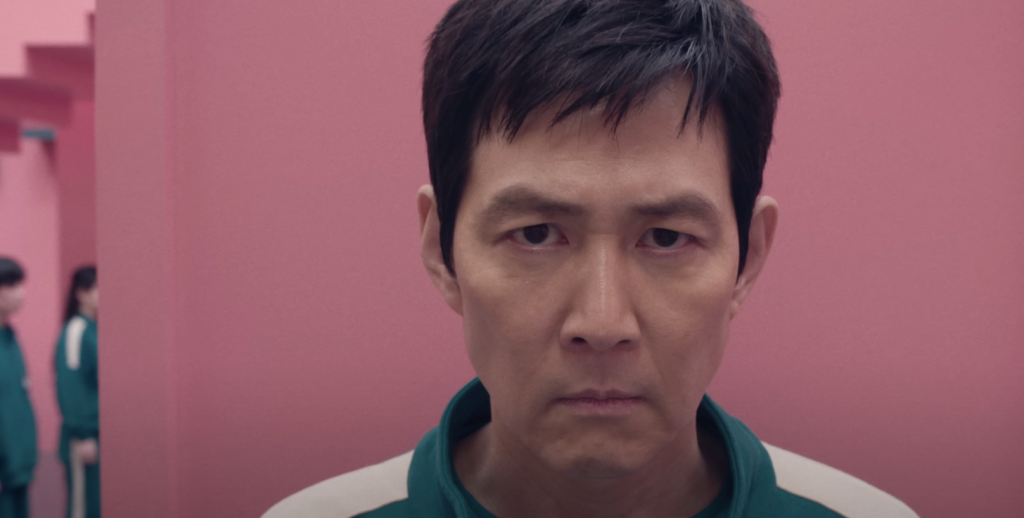Survival thrillers have taken over after the pandemic, and we’ve had two break-out shows that have kept the audience on the edge of their seats. Japan’s Alice in Borderland and South Korea’s Squid Game, are series that center around high-stakes games.
 Still from Squid Game | Credits: Netflix
Still from Squid Game | Credits: NetflixIt’s a life-or-death situation in both shows, but their approach to storytelling and a lot of other things are quite different. Even though Squid Game is the more popular one among the two, Alice in Borderland outdoes it on multiple parameters, and here’s a breakdown of the same.
Alice in Borderland has complex and varied games
 Alice in Borderland | Credits: Robot Communications Inc.
Alice in Borderland | Credits: Robot Communications Inc.The games in Alice in Borderland are a masterclass on how to feature diverse and complex playthroughs that truly challenge the players. They are categorized by playing card suits and every single game tests different abilities of humans such as physical strength, teamwork, intelligence, and emotional resilience.
Overall, the games are more layered and each comes with a moral dilemma and twist, but in contrast, the ones in Squid Game are simple. They do evoke nostalgic value for many, but Red Light, Green Light, and Tug of War are not as creative.
Fantasy and supernatural elements are more engaging
 Alice in Borderland | Robot Communications Inc.
Alice in Borderland | Robot Communications Inc.The best part about Alice in Borderland is how surreal the setting feels because it immediately transfers you to an alternate and deserted version of Tokyo. It’s eerie and mysterious, with a supernatural backdrop and dystopian vibe. The Borderland itself becomes a character and keeps the viewers in suspense.
On the other hand, Squid Game has a story grounded in realism, and it unfolds in a high-tech facility. This choice of set-up is understandable because the creators were aiming for social commentary more than aesthetics and escapism. Their strategy is indeed effective, but the lack of fantastical elements in the series does limit its scope.
Better character development and backstories
 Alice in Borderland | Robot Communications Inc.
Alice in Borderland | Robot Communications Inc.Alice in Borderland is amazing at showing us the background of its characters and their current motivations. This allows us to connect with them deeply, and the prime example is Arisu, our directionless protagonist who turns into a determined leader. Such transformations feel compelling, especially when the side characters like Usagi, Chishiya, and Kuina are just as good with rich backstories.
Squid Game also delves a bit into this territory, and we’re aware of the main character’s financial struggles, but secondary characters are not much explored. This limits us from caring too much about them because we’re not fully invested in their journey (the reason being that it wasn’t fully shown in the first place).
Some great and intelligent plot twists
 Alice in Borderland | Robot Communications Inc.
Alice in Borderland | Robot Communications Inc.The Japanese show truly shines when it comes to the unpredictability department because it goes from power struggles within the Beach community to revelations about the game’s origins. Viewers are constantly anticipating what will happen next, especially when the characters are trying their best to employ strategies and facing moral dilemmas.
There’s a cerebral layer to Alice in Borderland’s storytelling that seems to be absent from Squid Game despite its impactful surprises. It’s just that the former simply demands complete attention, which makes the plot twists more satisfying, every single time.
With that said, both shows are exceptional examples of how a survival thriller should be made. But ultimately, the ones who truly seek a thought-provoking experience should go for Alice in Borderland, instead of Squid Game.
You can watch Alice in Borderland and Squid Game on Netflix.
.png)
 2 hours ago
12
2 hours ago
12




































 Bengali (BD) ·
Bengali (BD) ·  English (US) ·
English (US) ·